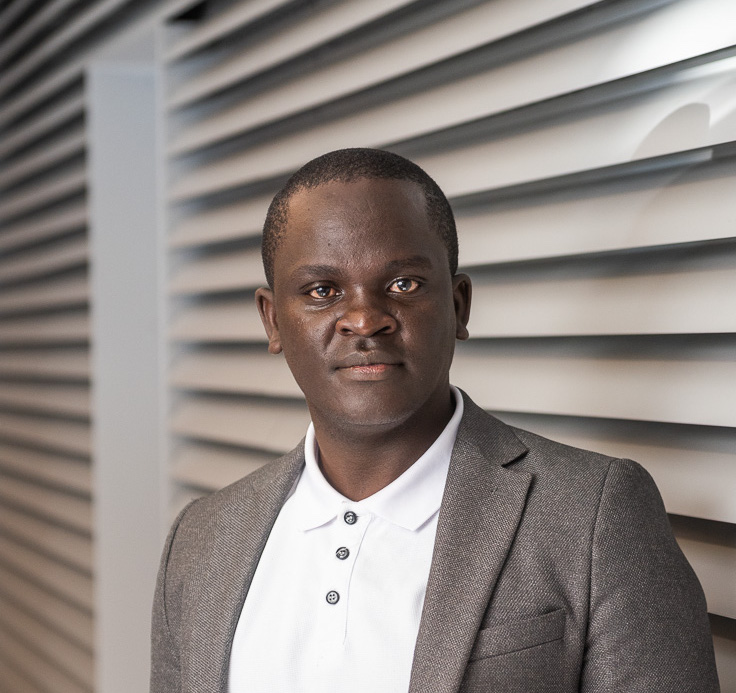Geoffrey leads the development of IDEMS’ innovative postgraduate MSc in Mathematical Innovation in collaboration with the Open University of Kenya.
The MSc programme is conceived as a means of introducing postgraduate students, many of whom are math teachers, to math curriculum related to and in the context of real-world technology innovation, along with existing open-source resources and how they can be incorporated into classrooms. It addresses the dynamic intersection of mathematics, technology, and societal needs. It is designed to equip mathematics educators at all levels with the knowledge and skills necessary to effectively integrate and use current and future technologies in their teaching practices–and to prepare students for their use in the future.
Geoffrey is also a faculty lecturer at the University of Maseno in Kisumu, Kenya.
What’s the most interesting project or problem you’re working on right now?
I’m leading the content development of graduate programmes that bridge Pure Mathematics and real-world technology. We’re showing how concepts like higher-order logic and categorical thinking can drive the design of systems, from intelligent chatbot flows to platforms that model complex social collaboration. Now, you certainly need developers to bring such systems to life. But what’s often overlooked is this: before code, there must be concept. And who better to forge those conceptual blueprints than mathematicians; those trained to think in the purest, most flexible, most adaptive language we have: mathematics? At IDEMS, the programme development goes beyond teaching theory; we intend to equip mathematical thinkers to become system architects and educational innovators. It’s where abstract structure meets practical impact.
What was the most challenging project or problem you’ve worked on?
Implementing filtering for home practice review modules in the Kuwait app is an exciting challenge! Crafting the right mathematical conditions to filter navigation branches while tracking field values feels like category theory in action; a perfect blend of second category logic and complexity. I’d proudly call it applied category theory!
What’s a recent professional success you’re especially proud of?
Hailing from a remote village in a Sub-Saharan country, I achieved what happens once in half of a century: earning admission to one of the world’s top universities, completing a PhD in the elite field of algebraic geometry, and defending my thesis on time; a feat last accomplished in 1974. Beyond this, I’ve published in the field, mentored MSc students, and now channel my expertise into a unique social mathematics career, blending academic rigor with real-world impact.
What’s the next tangible thing your work will produce?
I was part of a dynamic app authoring team working on multiple app authoring tasks. By documenting our processes, we’re creating powerful training resources for future authors to master open-app-builder technology.
What social problem is nearest and dearest to you? Poor access to quality education challenges SDG 4 and children’s rights globally. Open-access app-builder technology empowers parents to create tailored, equitable resources, bridging gaps and fostering lifelong learning opportunities for their children and themselves.
What role do you think tech can/should/could play in social impact?
Classical pedagogies in children’s education must evolve to embrace e-learning and homeschooling. Curricula emphasizing parents’ role in education will thrive through robust investment in technologies like open-app builder, transforming static textbook material into dynamic, interactive online resources. This shift will revolutionize education access and assessment while easing the financial burden on low-economy governments by reducing reliance on costly physical infrastructure.
Do you have a dream collaboration that you’d like IDEMS to take on?
I envision converting the Kenyan Competency Based Curriculum into dynamic, interactive online resources using open-app-builder infrastructure.
Why did/do you choose to work at IDEMS?
An opportunity to work remotely and be with family as well as contribute to social impact using my mathematics research experience.
Where is home?
Homabay County, Kenya


